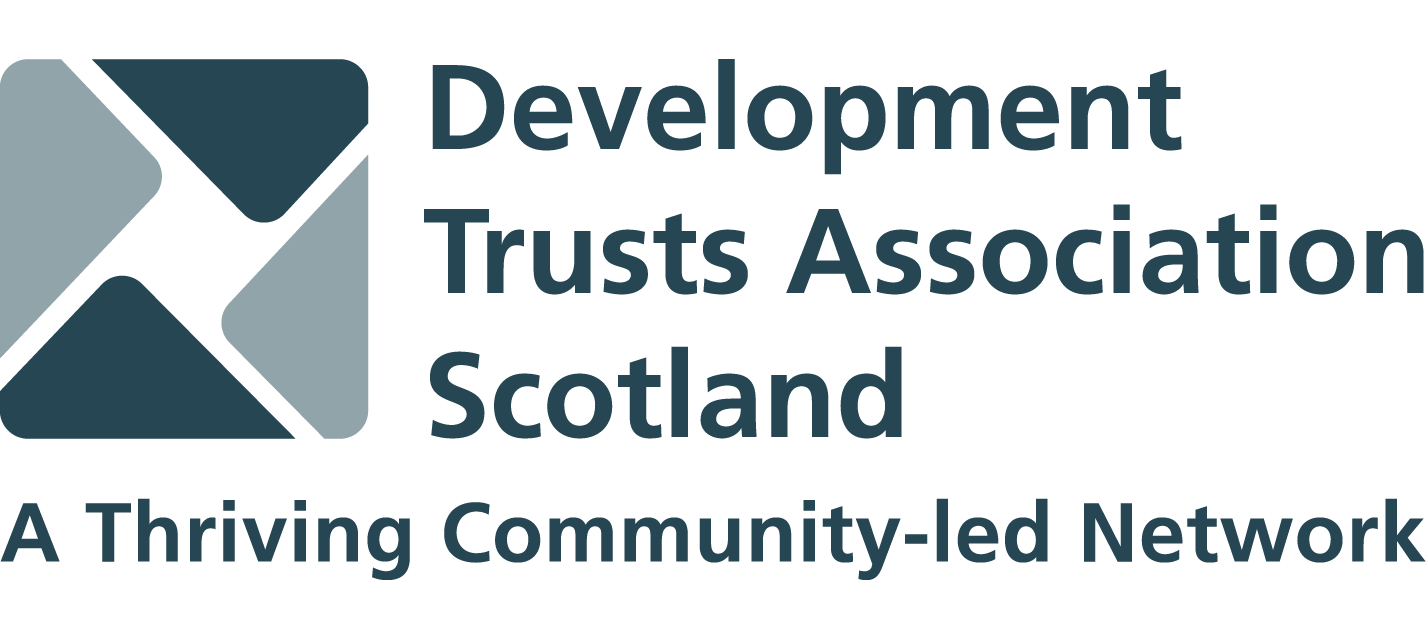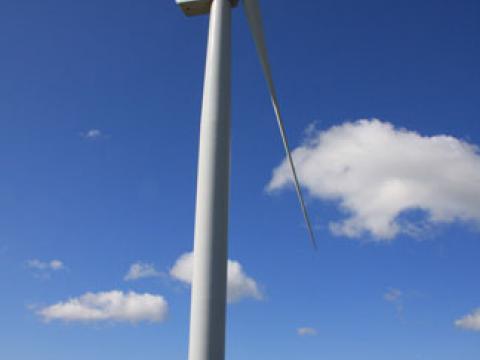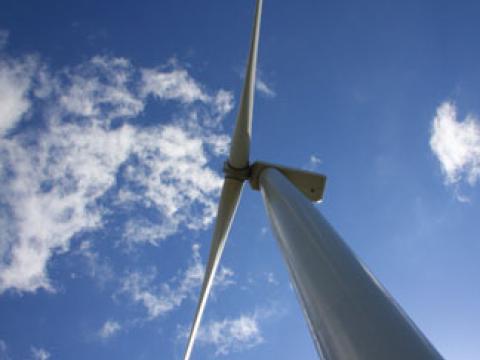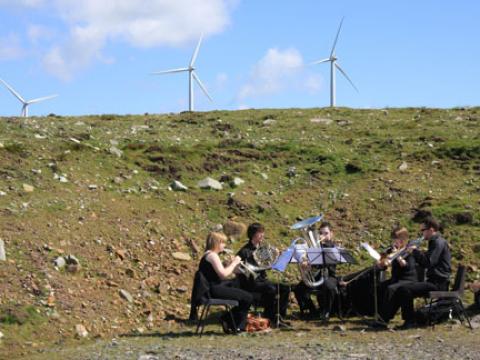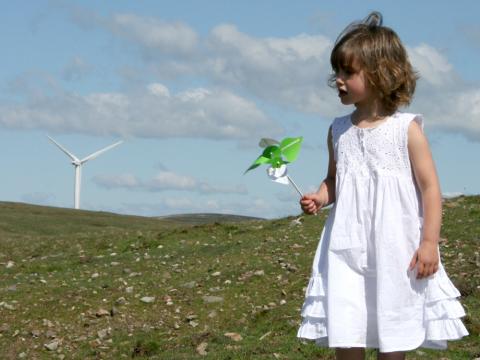Fintry Development Trust - Forth Valley (Stirling, Falkirk, Clacks)
See links below for further information.
 Case Study
Case Study
Fintry is a small rural community between the Campsie and Fintry Hills. Its Community Council was keen to explore ways for the village to become greener … the Fintry Development Trust has become the vehicle to meet this challenge.
A developer, Falck Renewables, approached the Community Council about a 14-turbine windfarm they were proposing nearby. The Community Council saw the potential, both, for developing ‘our own turbine’ and for moving towards becoming a carbon-neutral village.
Four residents were asked to take the negotiations forward. They formed Fintry Renewable Energy Enterprise (FREE) and carried out extensive community consultation through leafleting, a series of meetings and a survey at the annual ‘Fintry Fling’. Local people were very supportive and with this mandate the Community Council felt able to reject a community benefit payment in favour of pursuing ownership of a turbine and the significant income it would create.
Prolonged negotiations with the developer followed. Developers often sell on windfarms and having a ‘sitting tenant’ owning one turbine would have been commercially unacceptable. The solution was for the community to receive the equivalent of one fifteenth of the total income, while FREE agreed to take out a loan to cover the cost of this extra turbine. Through patience and commitment, along with cross-party political support, the community effectively owns one of the 15 turbines within the now working windfarm.
Gordon Cowtan from the Trust continues:
Fintry Development Trust the umbrella organisation was set-up in 2007 and has charitable status: FREE is wholly owned by the Trust and is its commercial arm. The Trust receives upwards of £50,000 per year while the loan is repaid, and potentially over £400,000 once repaid.
We’ve used the first part of this income to complete a major project insulating local homes. Step one was an energy survey of the houses in the village including an infra-red snapshot of the front of each house so that people could see where heat was escaping. This was on a winter evening when heat loss would be strongest, and we’d told people and the police that photographers would be going round. Of course, someone forgot and rang the police, who’d also forgotten … fortunately the confusion was quickly sorted.
Now almost half of all local homes (46%) have taken up the offer of free cavity wall and roof insulation. A free, doorstep insulation service really works. People were happy for the fitters to turn up and get on with the job: if they’d had to apply for a grant there’d have been a much lower uptake. We’re now looking at different types of insulation for the houses that weren’t able to benefit from this approach. We’ve also funded energy-saving measures in the sports club and a new heating system in the village hall, and we’ve established a village database through the survey work – so we now know what individual households want and need.
